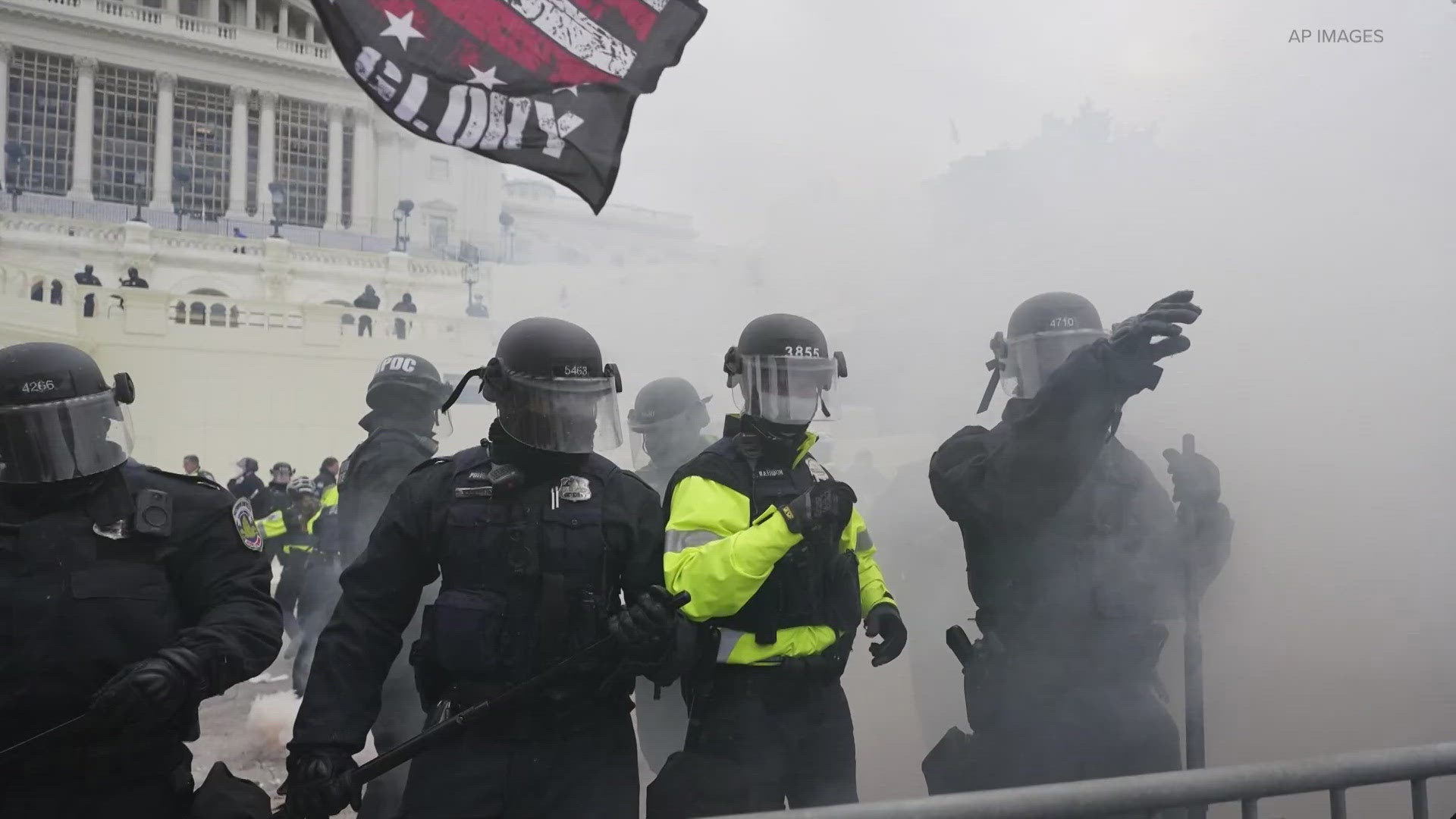WASHINGTON — Federal prosecutors say a Florida man who admitted to assaulting police on Jan. 6 should get no credit at sentencing for accepting responsibility based on his continued claims that it was officers who were the aggressors that day.
Raymund Cholod, 54, of Tampa, accepted a plea deal in February for one felony count of assaulting, resisting or impeding police. In exchange, prosecutors agreed to drop multiple additional felony counts, including a second count of assault and a more serious version of the charge for using a deadly or dangerous weapon that likely would have resulted in him being sent immediately to prison following his plea.
As part of the plea deal, Cholod admitted he was among the first group of rioters to enter the Lower West Terrace Tunnel, where the mob engaged in some of the most serious and prolonged acts of violence against police that day. While in the area, Cholod admitted he joined other rioters in pushing against the police line, grabbed a U.S. Capitol Police officer’s riot shield and threw a long, solid stick toward the mouth of the tunnel where police were standing. Cholod acknowledged the stick was both capable of causing serious bodily injury and that he “threw it with the intent to commit bodily injury.”


Typically, federal defendants who accept such a plea offer receive a three-level downward reduction in their offense level at sentencing – two levels for accepting responsibility and one for sparing the government the expense of trial. Cholod’s plea agreement contains the same boilerplate language in this regard as hundreds of other Jan. 6 defendants who’ve accepted plea offers – to wit, that he will receive those three levels “provided that your client clearly demonstrated acceptance of responsibility, to the satisfaction of the government, through your client’s allocution, adherence to every provision of this agreement, and conduct between entry of the plea and imposition of sentence.”
In a sentencing memo filed Tuesday, prosecutors said Cholod had failed to live up to that portion of the agreement. During a post-plea interview in May, prosecutors said Cholod blamed police for the violence and claimed Ray Epps, another Jan. 6 defendant who became the target of right-wing conspiracy theories, instigated the riot.
“He claimed that the crowd at the West Plaza was peaceful until the police began to use munitions against the crowd. He also claimed that Ray Epps, another January 6 defendant, had instigated the riot on the West Plaza,” prosecutors wrote. “When asked about his conduct at the police line inside the tunnel, Cholod claimed that he was merely defending himself against the police who attacked him and others with ‘billy clubs’ and that he merely rested his hand on a shield but did not otherwise attack the police. At this point, the interview was terminated.”
Prosecutors asked a federal judge to sentence Cholod to 55 months, or roughly 4.5 years, in prison. That request is squarely in the middle of the 51-63 month guideline range prosecutors say Cholod faces without the three levels of credit he would have otherwise earned. With the credit, his range would be approximately 37-46 months.
Cholod’s attorney, Allen Orenburg, said in his own sentencing memo Tuesday that his client was truthful during his post-plea interview and admitted all of his relevant conduct.
“He did not willfully or intentionally attempt to minimize his actions on January 6th,” Orenburg wrote. “Based on his personal recollection, he was explaining to the government the circumstances surrounding his actions on January 6, 2021.”
Orenburg asked for a short prison sentence, one year of supervised release and 150 hours of community service, arguing anything more would be an excessive punishment for a 54-year-old man with no criminal history other than traffic infractions. He also said Cholod has suffered and will continue to suffer collateral consequences of his conviction, noting that he currently lives in a homeless shelter in Florida.
The decision of whether to grant Cholod credit for accepting responsibility, and his sentence ultimately, will be up to U.S. District Judge Amit P. Mehta. Cholod was scheduled to be sentenced on July 2 at 9:30 a.m.

